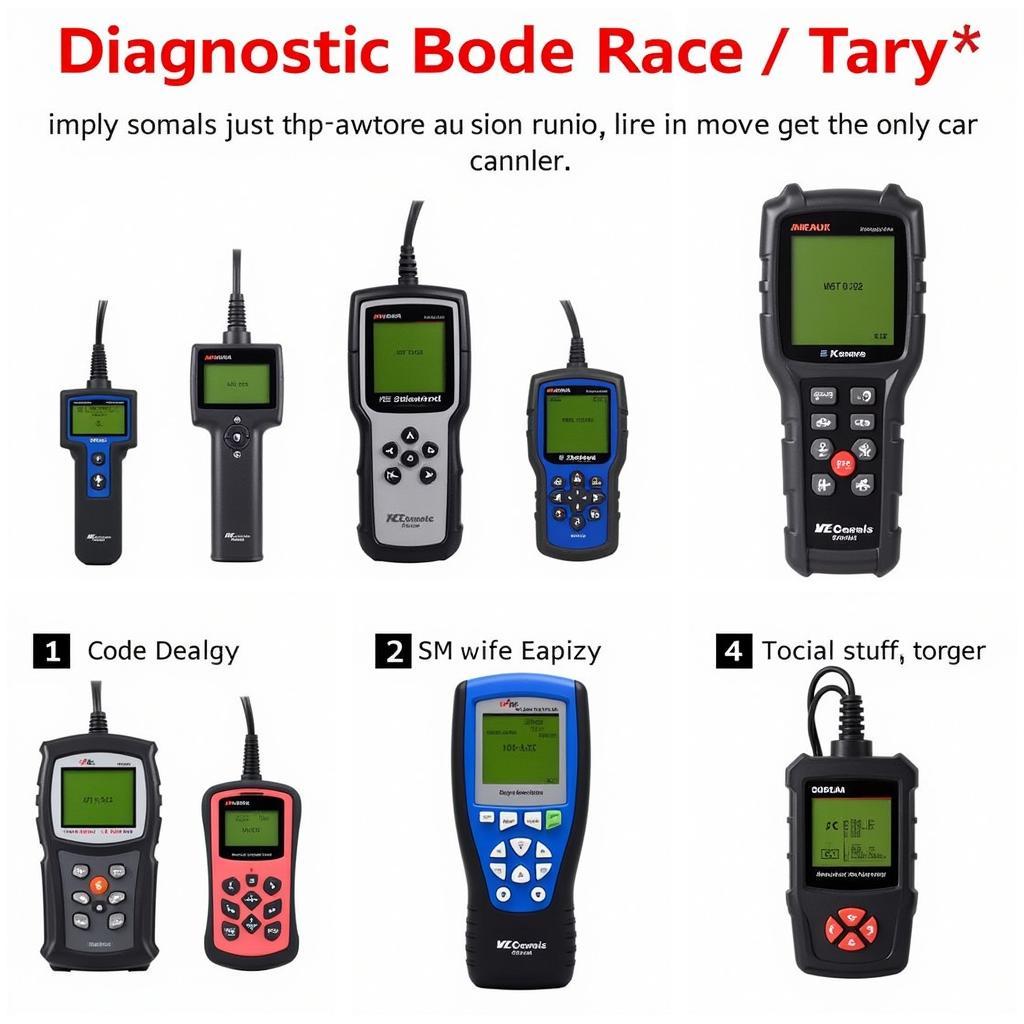A Diagnostic Car Scanner, once a tool found only in professional garages, is increasingly becoming a must-have for car enthusiasts and everyday drivers. Why? These handheld devices offer a window into your car’s computer system, allowing you to diagnose problems, understand error codes, and even monitor performance. Whether you’re a seasoned mechanic or a curious car owner, a diagnostic car scanner can be an invaluable asset.
Understanding the Power of a Diagnostic Car Scanner
Modern vehicles are equipped with complex electronic systems controlled by a central computer known as the Engine Control Unit (ECU). This computer continuously monitors various sensors throughout your car, collecting data on everything from engine temperature to airbag deployment.
When a problem arises, the ECU generates a specific Diagnostic Trouble Code (DTC) and stores it in its memory. This is where your diagnostic car scanner comes in.
By plugging into your car’s OBD-II port (usually located under the dashboard), the scanner can read these DTCs and translate them into understandable language. This allows you to pinpoint the source of the problem, saving you time and money on unnecessary repairs.
Benefits of Owning a Diagnostic Car Scanner
Beyond reading and clearing DTCs, diagnostic car scanners offer a range of benefits:
- Early Problem Detection: By regularly scanning your car, you can identify potential issues before they escalate into costly repairs.
- Improved Mechanic Communication: A diagnostic car scanner empowers you with knowledge about your car’s condition, facilitating more informed conversations with mechanics.
- Enhanced DIY Capabilities: For the mechanically inclined, a scanner can guide you through troubleshooting and even help you perform basic repairs yourself.
- Performance Monitoring: Many scanners offer real-time data on engine performance, fuel economy, and other vital parameters, allowing you to optimize your driving habits and monitor your car’s health.
Choosing the Right Diagnostic Car Scanner
The market is flooded with diagnostic car scanners, from basic code readers to advanced professional-grade tools. When choosing a scanner, consider the following factors:
1. Vehicle Compatibility: Ensure the scanner supports your car’s make, model, and year.
2. Functionality: Determine the features you need. Basic scanners offer code reading and clearing, while advanced models provide live data, graphing capabilities, and even specialized functions like ABS bleeding or airbag reset.
 Different types of car diagnostic scanners arranged on a workbench
Different types of car diagnostic scanners arranged on a workbench
3. User Interface: Opt for a scanner with an intuitive and user-friendly interface. Consider factors like screen size, button layout, and menu navigation.
4. Updates and Support: Software updates are crucial for maintaining compatibility with newer car models and accessing the latest features. Choose a scanner from a reputable brand that provides regular updates and reliable customer support.
Investing in Automotive Peace of Mind
While a diagnostic car scanner might seem like an unnecessary expense, it’s an investment that can save you headaches and money in the long run. By providing you with the power to understand your car’s health, a diagnostic car scanner gives you peace of mind and keeps you in the driver’s seat when it comes to your vehicle’s maintenance.

Leave a Reply